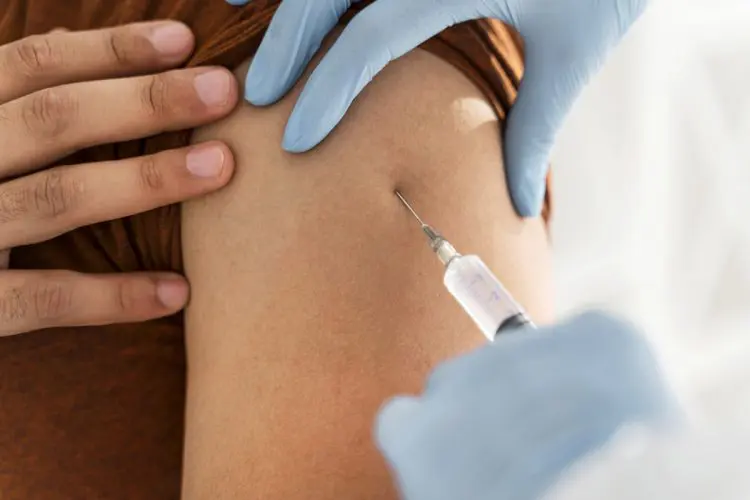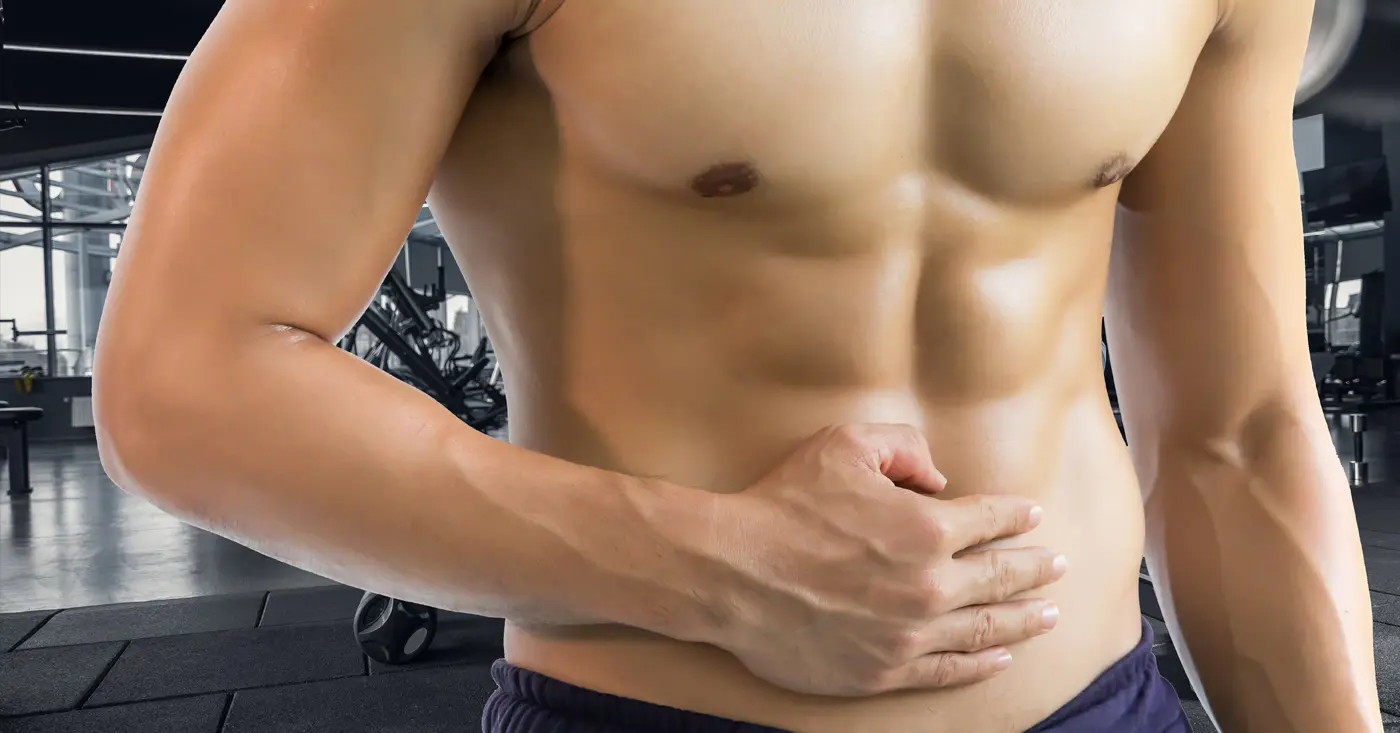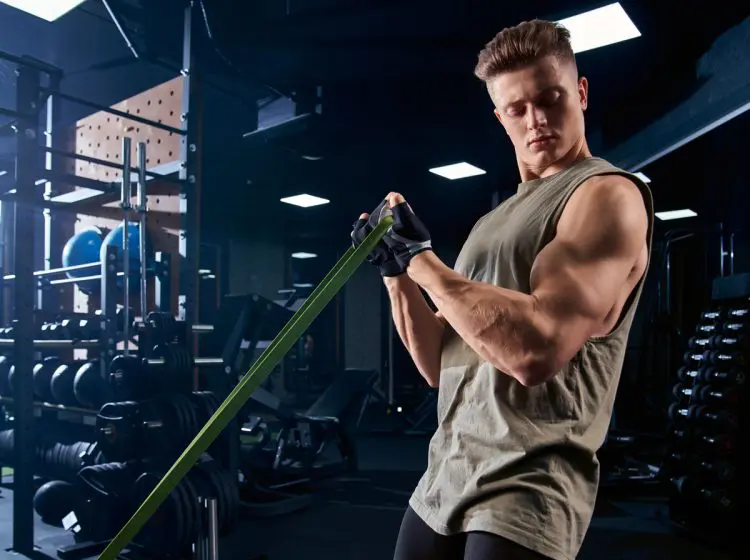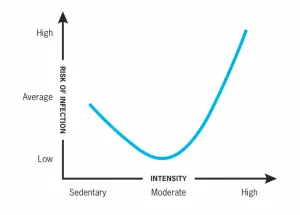We are living in tuff times. The world has not encountered a global pandemic like Coronavirus in at least the past century. The importance of health and hygiene are being communicated on all levels. People in recent memory have never taken immunity as seriously as they’re taking it now. We’re writing this article keeping in mind the troubled waters we are in since the past year.
Every year there is at least one instance when you’re under the weather, and you need to decide between hitting the gym or staying put on the couch. Since you’re reading this article, there are chances that you’re in one such spot right now.
There is a common conception among gym-goers that you should be training when sick because you can sweat the sickness out of your system. We’ll be critically examining this belief today. Not only are we going to contemplate if you should train when you’re sick, but we’ll also be going over the different approaches you can take if you do decide to hit the gym.
Hello, Immune System
If it was not for our immune systems, we wouldn’t see a healthy day in our lives. Our immune system is to us what the arc reactor is to Iron Man – we can’t live without it. The immune system fights against bacteria, viruses, fungi, and parasites every single day.
Some of the common bacteria/viruses are the Upper Respiratory Tract Invaders or URTIs. These invaders are responsible for:
- Colds
- Coughs
- Influenza
- Sinusitis
- Tonsillitis
- Throat infections
- Middle ear infections
The immune cells responsible for defending us against foreign attacks originate in our bone marrow and thymus. They take on the invaders through the spleen, lymph nodes, and mucus membranes. Sounds like gibberish? In simple words, the immune cells first make contact with the viruses in the mouth, gut, lungs, and urinary tract.
The Immune Response – Training When Sick
There are two types of immune system responses:
Innate (Natural) Immune Response
Innate responses are the first responders to all the crises within our bodies. The innate immune system develops when we are young. You probably know people who constantly fall sick. The culprit here is their underdeveloped innate immune system. The innate responses include:
- Physical/structural barriers (like the mucous lining in nasal passages)
- Chemical barriers (like our stomach acids)
- Protective cells (like our natural killer ‘NK’ cells, white blood cells that can destroy harmful invaders)
Read also: Important Diet Habits To Implement For A Healthy Immune System
Adaptive (Acquired) Immune Response
After the first responders, come the special forces. The body deploys the adaptive immune response when the innate system is overcome by the invaders. It is a more sophisticated system composed of highly specialized cells and processes.
The adaptive response fights infections by destroying microorganisms like viruses and bacteria and preventing pathogens from colonizing in our bodies. They are made up of T and B cells which are responsible for fighting off bacterias and producing antibodies, respectively. The specialized WBCs develop in the thymus and bone marrow.
The fascinating thing about B cells is that they have a memory which makes them incredibly effective. If your body encounters a familiar pathogen, they mobilize more effectively to fight it. Building up of these kinds of cells and response systems is known as “building immunity.”
Immunity and Vaccinations

A lack of exposure to pathogens and the immaturity of the adaptive immune response system is the reason why kids fall sick more often than adults.
Knowing this is especially important given the COVID-19 times we are living in.
So, Should Your Train While Sick?
An effective training program – one where you’re breathing heavily, sweating, working hard, and feeling some discomfort – awakens a stress response in the body. After an intense workout, your CNS (central nervous system) is sure to take a hit.
On normal days, your body can cope with this stress like it’s no one’s business. Putting progressive loads on your body over time makes you stronger and fitter. On the other hand, when you’re sick, dealing with such loads can be a little too much for your immune system.
Your immune system is already engaged in dealing with the invaders and producing antibodies, and on top of that, you are making it work overtime by hitting the gym. But that doesn’t mean you should hit the bed as soon as you get your first sneeze.
Exercises To Do When You’re Sick
Non-exertive exercises shouldn’t hurt, and they might even help you with your sickness unless you’re extremely out of shape, that is. Sticking to the bed for the entire duration of your sickness can prolong your recovery time. Keeping your body moving can help your body recuperate faster. Non-strenuous immunity-boosting exercises include:
- Yoga
- Walking (preferably outdoors)
- Low-intensity bike riding
- Practicing T’ai Chi
These exercises aren’t exertive enough to create immunity-compromising stress on the body. Performing these light exercises can make you feel better and recover faster. Everything else aside, while under the weather, the exercise-induced unblocked nose is worth all the effort.
What About Resistance Training?
As concluded, your best bet while sick should be to stick with non-strenuous exercises. The problem here is that not all workouts are created equal, and what might be low-intensity for some could be high-intensity for others.
A low-intensity workout will generally leave you feeling energized. A high-intensity session, on the other hand, will exhaust and burn you out. If you’re ill, staying away from challenging and annihilating training is a good idea. But why is that, you ask?
How Workouts Affect Your Immune System
Workouts can have an impact on both your innate and adaptive immune response systems. Let’s take a look at how different training styles can impact your immune system:
Long Vigorous Sessions – You are the most prone to infections after a long and intense training session. The prolonged durations put your immune system under too much pressure. The ill-impact on the nervous system is one reason why it is recommended to keep the training sessions under one hour long.
Brief Vigorous Sessions – One brief but intense session doesn’t cause the same immune-suppressing effect as the long workouts. Try getting your workouts done within 45 minutes for the least impact on your CNS.
Moderate Intensity Sessions – These types of workouts have been shown to boost immunity. It should serve as a reminder that you don’t always have to take an “all-in” approach to succeed at something.
Chronic Resistance Sessions – stimulates innate (but not adaptive) immunity.
Chronic Moderate Sessions – strengthen the adaptive immune system.
Consistent, moderate exercises and resistance training can improve your immune system over time. The single-high intensity or extremely long workouts (more than 1.5 hours) can interfere with your immune system. Avoid the latter if you’re training while sick.
Impact of Stress & Training on Your Immune System
A study gathering data on exercise habits and influenza found the following things:
- People who never exercised got sick pretty often.
- Who exercised between once a month and three times a week did the best.
- People who exercised more than four times a week got sick most often.
You might want to dismiss this study based on the end of the spectrum you are on. Most people would land up on either end of the results. Only a very few people who like working out train between once a month and three times a week. Fitness is looked upon as a lifestyle. People try to make working out a part of their daily lives. Many people either work out 5-6 days a week or nothing at all.
Introducing the J-Shaped curve theory.
While being a couch potato or overly active can negatively impact your immune system, something in the middle can improve immunity.
Other Factors Contributing To Immunity
Along with stress and tension through training while sick, many other factors can affect your immunity. These factors can collude with working out and can either add to our immunity or make us more prone to falling sick. These include:
Age
Your training style should be based on your age. The innate immune system can wear down as we grow older. Performing the same exercises you did while you were 20 can do some major damage when you are in your 40s.
Sleep
You are going to struggle with recuperating after workouts and recovering from illnesses if your resting cycles are not optimal. You need at least 7-8 hours of sleep every night for efficient recovery.
Mood
There’s evidence immune alterations affect mood and inflammation. Clinical depression is two to threefold higher in patients with diseases that have elevated inflammatory activity.
Training Age
The more experienced you are with training, the better your body tends to handle exercise. As we said earlier, what might be high-intensity for some, could be moderately intense for others. The more advanced a lifter you are, the lesser will be the stress response of your workouts on your immune system.
Wrapping Up – Training When Sick
As a rule of thumb, you should ease back into your workouts in proportion to the length of your sickness. If you were ill for four days. Take four days to ease back into your training routine.
The majority of your workouts while you’re sick should be out in the open. You should stay away from the gyms as they, in any case, aren’t the most hygienic places. We don’t want to freak you out but a bug can easily be spread in the gym as people are handling the same equipment.
The proximity among people is also a cause of concern as it facilitates the spread of viruses through respiratory droplets in the air. So, take your time, let your symptoms be your guide, and focus on your recovery. Don’t rush into your workouts. You’ll have enough time and energy to kick some ass in the gym after you’re back at 100%.
Tip: If you're signed in to Google, tap Follow.













